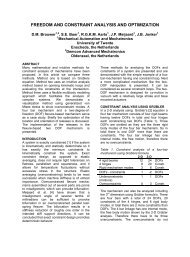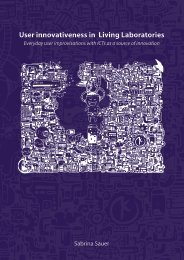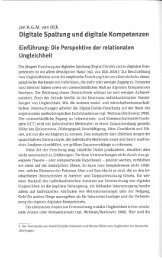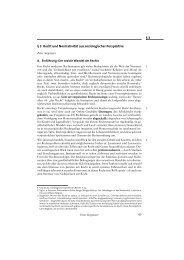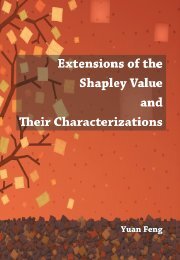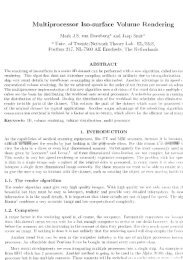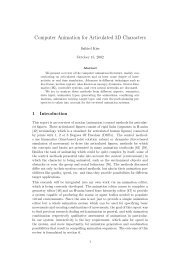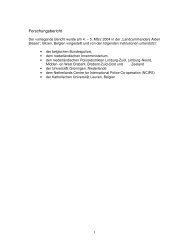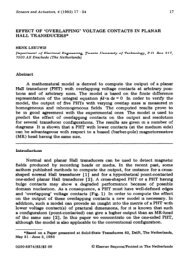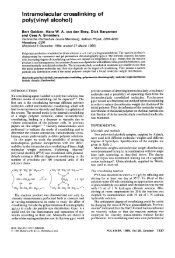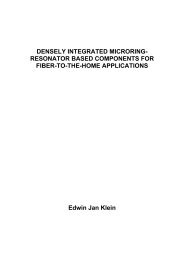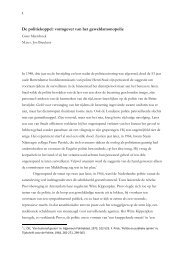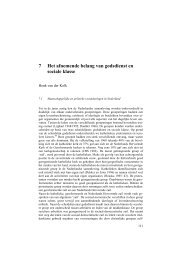Chapter 1 - Universiteit Twente
Chapter 1 - Universiteit Twente
Chapter 1 - Universiteit Twente
Create successful ePaper yourself
Turn your PDF publications into a flip-book with our unique Google optimized e-Paper software.
Stage One: Weakening the Ramparts<br />
- that is, the propensity to behave congruently across situations. The next chapter of<br />
this dissertation will address in detail the role of self-regulatory resource depletion in<br />
responding to persuasive heuristics.<br />
General discussion<br />
Four studies tested the first stage of our two-stage model to account for the role of<br />
consumer self-regulatory resource depletion in the effectiveness of sequential request<br />
scripts that are used by professional fundraisers and sales representatives to elicit<br />
compliance. Stage 1 of the model posits that responding to an involving initial request<br />
(be that answering a series of cognitively demanding questions or questions that<br />
prompt self-presentational responses) reduces the supply of self-regulatory resources<br />
within the target. We found that responding to a series of questions (the typical first<br />
step in most multiple request strategies, see Burger, 1999; Cialdini & Goldstein, 2004)<br />
induced a state of self-regulatory resource depletion. Moreover, the effects of yielding to<br />
this initial request were found both in the lab (Experiment 2.4) as well as in a naturalistic<br />
setting outside the laboratory using actual consumers as participants (Experiments<br />
2.1, 2.2, and 2.3). The effects were witnessed on the extent of self-reported levels of<br />
resource depletion (Experiment 2.1), persistence on an unsolvable puzzle (Experiment<br />
2.2, cf. Baumeister et al., 1998), as well as suppressing initial responses on a Stroop task<br />
(Experiment 2.4, cf. Webb & Sheeran, 2003).<br />
Converging evidence was found in two other studies (Fennis et al., 2009, Experiments 1<br />
and 2), one administered in the lab and one in a fieldsetting, which presented participants<br />
with a highly involving initial request, either involving active self-presentation or<br />
demanding cognitive operations. As compared to participants not exposed to an initial<br />
request, these participants showed an impairment in counterargument generation (cf.<br />
Wheeler et al., 2007) and reduced performance on complex reasoning as a measure<br />
of intellectual functioning (cf. Schmeichel et al., 2003). Taken together, the effect sizes<br />
54



